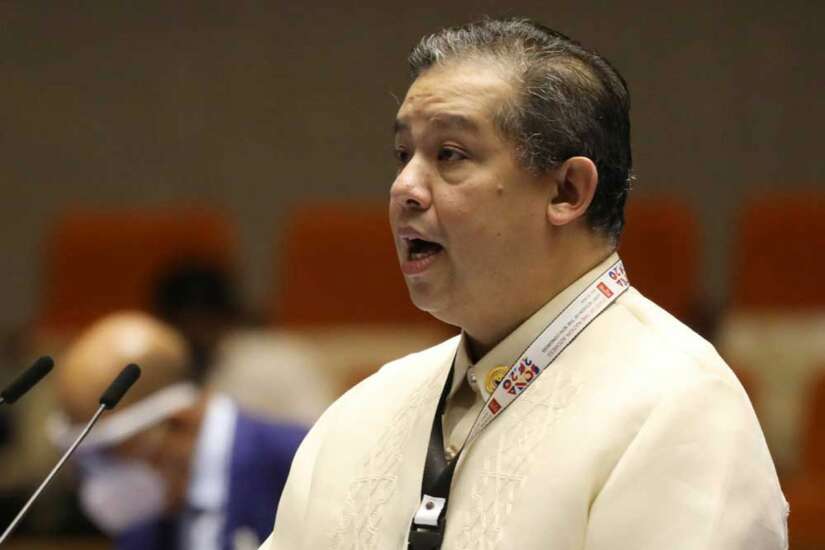HOUSE Majority Leader Martin Romualdez reaffirmed his commitment to advance Constitutional reforms in order to sustain the country’s economic growth.
Romualdez, president of Lakas-CMD, is among House leaders who signed in manifesto of support for the Resolution of Both Houses No. 2 (RBH 2) filed by Speaker Lord Allan Velasco.
Romualdez said the push for Charter change (Cha-cha) by the Velasco leadership would complement the Duterte administration’s initiatives to accelerate economic growth.
“We will keep our dedication, commitment, passion and the flame burning in pursuing Charter change until we reap the real benefits of genuine constitutional reforms for our children and the succeeding generations,” Romualdez said.
“We need to create opportunities and for strong economic growth to be felt also by ordinary people,” he added.
The House committee on Constitutional amendments has revived the discussion of Cha-Cha but only focusing on economic provisions.
RBH 2 specifically aims to amend certain economic provisions of the almost 34-year-old Charter, particularly Articles XII (National Patrimony and Economy), XIV (Education, Science, Technology, Arts, Culture and Sports) and XVI (General Provisions).
The measure seeks to add the phrase “unless otherwise provided by law” to several sections of the Constitution, which restrict foreign ownership of land, natural resources, public utilities, educational institutions, media and advertising.
It provides that by a vote of three-fourths of all its members, the Senate and the House of Representatives voting separately could propose amendments to the economic provisions of the basic law of the land.
Meanwhile, Deputy Speaker and Bagong Henerasyon party-list Rep. Bernadette Herrera said that liberalizing the economic provisions in the 1987 Constitution could be the solution to the decades-old problem of forced migration caused by lack of better opportunities.
Herrera expressed confidence that RBH No. 2 would help attract foreign direct investments (FDI), which will translate to more decent jobs and stronger local economy.
“By opening up the economy to foreign investors, we will be bringing the opportunities closer to Filipinos, which means they don’t need to work overseas because high-paying jobs will be available for them here,” she said.
Herrera added it is time for the government to “bring home our overseas Filipino workers” by beefing up foreign investments in the Philippines.
The country’s FDI inflows have been on a decline since 2019. FDI from January to November 2019 amounted to US$6.4 billion, 30 percent lower than the US$9.2 billion recorded in the same period in 2018.
According to the Philippine Statistics Authority, total foreign investments approved in the third quarter of 2020 amounted to only P31 billion, which is 83 percent lower than in the same period in 2019.


Comments are closed.